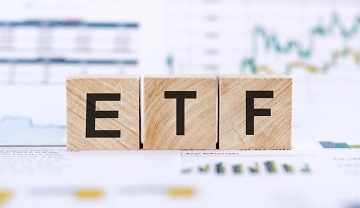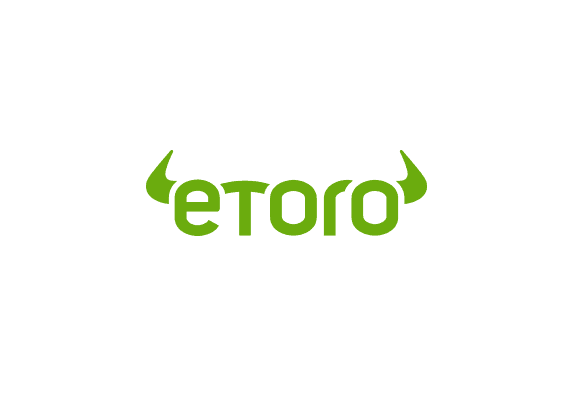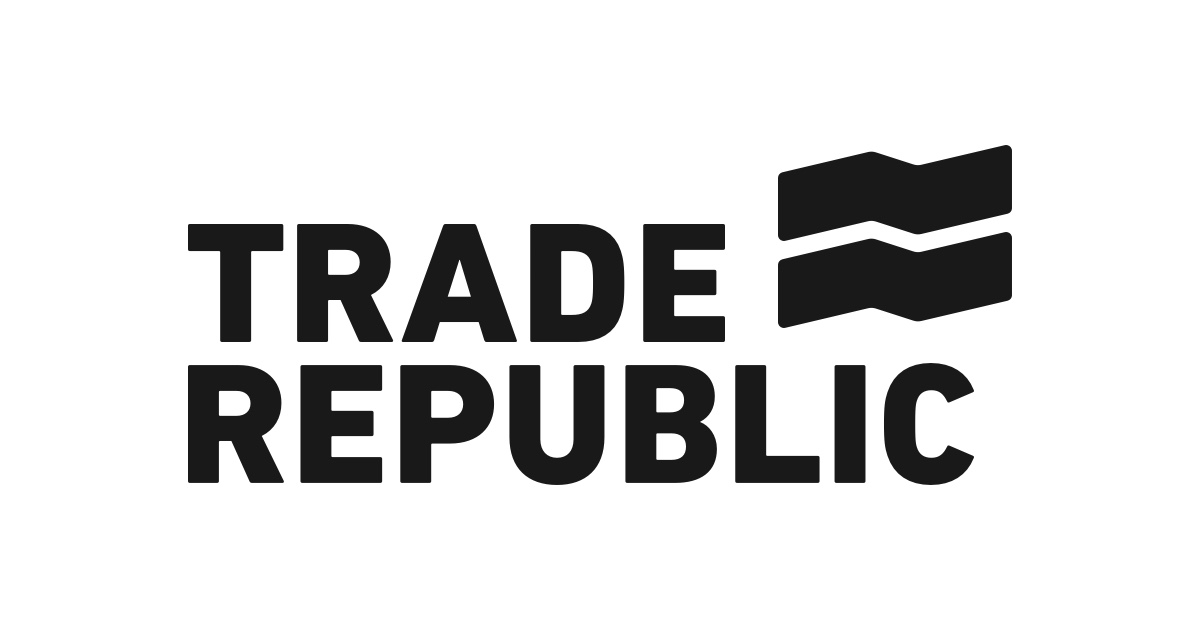Stock investing
Stock market investing means buying and selling shares of a company. Investing in shares is a popular way of generating profits and increasing your capital via dividends and price gains. Next to regular stocks you can also stock trade in, for example, derivates, funds, options and IPOs.
Please note: trading stocks on the financial markets involves risks, you can (partially) lose your investment.
Buying stocks on the financial markets
 With stock investing you can buy shares in a company on the stock market, meaning you own a small part of that business. If the business is successful and grows, for example because of a big new client or bigger market share, your stocks will increase in value. This means you can sell your share at a higher price and generate capital gains.
With stock investing you can buy shares in a company on the stock market, meaning you own a small part of that business. If the business is successful and grows, for example because of a big new client or bigger market share, your stocks will increase in value. This means you can sell your share at a higher price and generate capital gains.
If the company generates profits, it is possible that you receive a part of these as a shareholder. The handed out profit shares are called dividends. Your dividends will be proportionate to your share in the company. Keep in mind, though, that a company is not necessarily able nor obligated to give out dividends. But established public companies, with a decent track record, often hand out profit shares.
Stock trading platforms
You can’t buy stocks directly from a company listed on the stock exchange. Instead, the easiest and more popular way is to create a brokerage account with an online trading platform. Below you will find some of the leading stock trading brokers in Europe:
If you want to trade and invest all by yourself eToro is currently Europe’s online brokerage champion. You can trade in stocks, commodities, crypto and other currencies. Templates allow you to invest directly in a variety of sectors. Don’t invest unless you’re prepared to lose the money you invest.
With the platform Trade Republic, you can invest in 10,100 stocks and ETFs. Start investing in fractional shares from 1 euro. You also earn 4 percent interest on uninvested balances.
More stock investors in Europe
Investing in stocks is growing more popular in Europe because of lower interest rates and the ease of online investment platforms. The coronavirus pandemic has also given stock investments an extra boost, as people are looking for ways to build up extra savings.
Investing in stocks is growing more popular in Europe.
For example, the number of German people that own shares has grown nearly 30 percent in the last few years. And in the Netherlands, the amount of stock-owning households has increased 17 percent in 2020 – reportedly the biggest peak since 1990. Although investing in stocks is more commonplace in the United States and the United Kingdom, Europeans are quickly gaining interest in stock trading.
Returns of stock investment
 As mentioned before, returns from stock market investments are mainly based on stock price gains as well as possible dividends. Historically, stock trading can generate good returns. The average stock market return is 10 to 15 percent per year, based on the S&P 500 (the 500 largest American companies) in the past 10 years.
As mentioned before, returns from stock market investments are mainly based on stock price gains as well as possible dividends. Historically, stock trading can generate good returns. The average stock market return is 10 to 15 percent per year, based on the S&P 500 (the 500 largest American companies) in the past 10 years.
Returns on your invested money will vary per year, of course. This is why a long-term investment horizon of at least 5 years is advised for risk mitigation. Stock trade in the short term poses much larger risks. Therefore it is not recommended for novice investors.
Risks of buying and selling shares
When you start to invest in stocks your money will be at risk, though. For instance, the market rate not only depends on company performance, but on investor’s behavior as well. The market of supply and demand can increase or decrease the stock price, and these developments are not necessarily logical.
The stock price can increase and decrease without a logical explanation.
For instance, a company may perform well and be financially healthy, but still have a plummeting market rate. Investors may have expected better results or have bad prospects into the future. Or investors may have lost interest in this specific business. Alternatively, there can be a scandal directly impacting the company’s reputation with customers and investors.
In other words, you can’t always predict when a stock price will take a dive. For this reason, it is advised to spread your investments as much as possible. Make sure to invest in smaller amounts and buy stocks from different types of companies. This way, you will limit possible losses.
Open an account directly with Etoro, a large European broker, or with Freedom24, which offers a range of one million stocks, ETFs and options. Investing involves risks. You can lose your investment.
Dividend investing
Companies that have reached stability in their stock value, may not be interesting with regards to price gains. The stock price will not experience a lot of growth anymore, because these companies have existed for a long time and are already established. However, they are an excellent candidate when it comes to dividend investing.
Dividends, as mentioned before, are a part of the company’s profits that shareholders may receive every year. A company has to be profitable, though. And even if a company makes profits, they are not obligated to hand out dividends. Even so, many public companies do hand out a slice of their profits.
Dividends are part of the company’s profits that shareholders may receive.
Dividend investing means you build up value over a long period of time. By reinvesting your received profit shares, you can increase your assets over time. This is a low-risk form of investing, which is why many people use dividend investments to build up their retirement funds, for example.
Initial Public Offerings (IPOs)
 IPO stands for Initial Public Offering, which is the first time a company’s shares are offered on the stock exchange. As an investor, you might want to buy shares before a company goes public, but this is not always possible. Therefore, some online brokers offer shares right before the first day of IPO.
IPO stands for Initial Public Offering, which is the first time a company’s shares are offered on the stock exchange. As an investor, you might want to buy shares before a company goes public, but this is not always possible. Therefore, some online brokers offer shares right before the first day of IPO.
When buying pre-IPO stocks, online brokers usually require a minimum investment amount. Like, for example, a thousand euros. Keep in mind that the chance that you will buy shares for this amount of money is small. Usually the demand is bigger than the supply. However, companies like to sign over because it favors their stock price.
IPO stock investing is very risky and requires some knowledge beforehand. So make sure to look into a company’s numbers and track record before buying pre-IPO stocks. The returns of investing in IPOs can be very high, but it is also possible that a public offering is overhyped. As an investor, it is possible to lose your investment.
Investing in gold stocks and other commodities
 Another method of stock market investing is buying shares in companies that operate in raw material markets, such as gold and silver mines. These can be incredibly large companies that mine for tens of millions euros per year. Commodity investing can generate good returns over time. Possible returns mainly depend on potential scarcity as well as stock price gains.
Another method of stock market investing is buying shares in companies that operate in raw material markets, such as gold and silver mines. These can be incredibly large companies that mine for tens of millions euros per year. Commodity investing can generate good returns over time. Possible returns mainly depend on potential scarcity as well as stock price gains.
Buying stocks from a mining company can be seen as relatively low-risk, because precious metals like gold have more of a fixed value than many other assets. They are also a good portfolio diversifier. This is because raw materials act as a correction for inflation and perform well in times of economic crisis.
Stocks from raw material markets are a good portfolio diversifier.
Although investing in commodity stocks is considered low-risk, it is not entirely risk-free. For instance, gold mines are located in areas where there can be war, plundering or illnesses. Or a mining company is managed badly and goes bankrupt. Therefore, just like with any type of stock investment, it is advised to spread your assets.
Mutual and Exchange Traded Funds (ETFs)

Do you want to invest in stocks, but are you having trouble choosing which companies or individual stocks to invest in? A mutual fund, or exchange traded fund (ETF) might be the solution. Mutual funds are funds that actively try to get the best results in a sector or theme, or beat a certain index. They are often managed by experts with a good track record. However, the costs of the experts themselves have their influence on the net results as well.
A stock ETF is a collection of company shares that tracks a certain index or sector. For example, you can invest in a gold ETF or crypto ETF that only invests in companies from that sector. There are also index funds that tracks the S&P 500, for instance.
An ETF is meant for more passive investors that do not want to actively track the market. This saves you a lot of time and effort. In addition, an ETF automatically spreads risks across different stocks. The same can be said of a mutual fund, but the difference is that ETFs are not actively managed. Therefore they don’t try to make the best investments, but on the other hand the costs are generally lower as well. It is also more cost-effective than buying individual stocks.
Stock options trading
Options trading is another type of share investing. Options are a type of derivative, meaning their price depends on the price of something else. This can be the market price of a company share or, for example, a raw material like gold or steel. An option, then, is a financial agreement between two parties to buy or sell the underlying asset for a certain price at a certain time. A stock option usually consists of 100 shares of the underlying product, for instance.
Options trading is interesting because it can protect you from declining stock prices. After all, the price is already agreed upon in the contract until the option’s expiration date. For this reason, options are also a way of speculating about future stocks prices. Stock option trading can also be used to limit the potential loss of high-risk stock investments, like buying stocks from a tech startup. Stock options trading, however, comes with risk and can be complex for new investors. If you speculate wrong, you can lose your investment.
Contracts for Difference (CFDs)
Furthermore, there is something called a contract for difference or CFD for short. Where an option can preset the price of an underlying asset until a certain date, such as gold, CFDs are meant to account for the possible price difference that occurs between the contract opening and closing. An important difference is that CFDs are not based on an underlying asset’s value, like the price of gold. Instead, it represents the value change of the financial contract (like an option) between its start and end.
CFDs can be complex and pose great risks for less experienced investors.
Similar to options, CFDs are a way to profit from market price fluctuations without owning the actual asset. The investor will not own gold, for instance, but will speculate whether the price of gold will move up or down. The upside is that investing in CFDs is usually cheaper than purchasing the asset itself. The downside is that it is a type of betting game that can be complex and pose great risks for new investors.
It is also important to note that the CFD market is not closely regulated like other financial markets. CFDs are an over-the-counter product and do not go through monitored exchanges, for example. Contracts for difference can offer high leverage, but this also means the losses can be greater. The European securities markets regulator ESMA has restricted the CFD-market for these reasons, as to protect investors.
Frequently asked questions
Some frequently asked questions about stock market investing are:
How much money should beginner investors invest?
If you start investing it is wise to not invest all your money at once. To invest in stocks can be a nice way to make a profit on your savings, but it comes with a risk. You can (partially) lose your investment. Therefore it is advised to diversify your money. You can spread easily by buying mutual funds or ETF’s, but it is smart to also spread your money deposits over a longer period of time.
You can still lose your investment on a longer period of time, of course. But you will be more experienced and hopefully more aware of how financial markets operate.
What stocks are good to start investing with?
Even though online you can find a lot of investment research, nobody knows for sure what the future of stocks will bring. Be aware that past performance is no guarantee for future profits. Therefore, it is wise to spread your money a little. An easy way to do so is to buy funds, such as ETF’s.
How can I trade on the stock markets?
To buy or sell stocks on the stock exchange, you need a brokerage account with a broker. Online brokers are popular in Europe because they make it able to start with a small amount of money and for relatively cheap prices. However, they usually don’t offer much financial advice. Be aware that investing comes with a risk. With the wrong investments you can lose your money.


